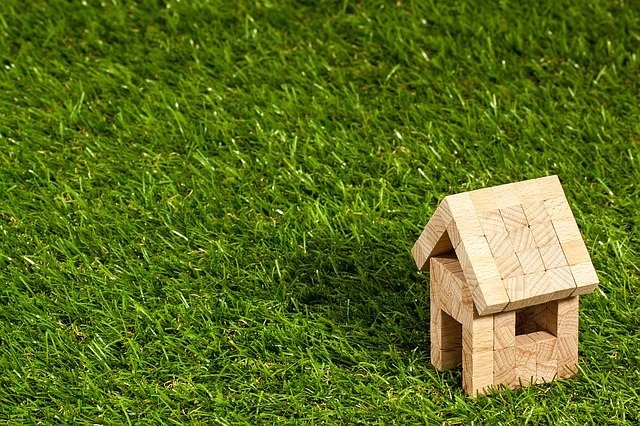Sustainable Landscaping and Eco-Friendly Practices for Landowners in Lagos

1. Introduction to sustainable landscaping and eco-friendly practices
In an increasingly urbanized world, it is essential for landowners in Lagos to embrace sustainable landscaping and eco-friendly practices. Sustainable landscaping goes beyond creating visually appealing outdoor spaces; it focuses on conserving resources, minimizing environmental impact, and promoting biodiversity. By implementing eco-friendly practices, landowners in Lagos have the opportunity to enhance the beauty and functionality of their properties while contributing to a greener and healthier environment. This article explores the benefits of sustainable landscaping, key principles for designing a sustainable landscape, selecting appropriate plants for the Lagos climate, water conservation techniques, organic gardening, soil health management, and the incorporation of renewable energy and sustainable materials in landscaping projects.
1. Introduction to sustainable landscaping and eco-friendly practices
Understanding the concept of sustainable landscaping
Sustainable landscaping is more than just planting a few flowers and trees in your yard. It’s about creating a harmonious and eco-friendly outdoor space that supports the natural environment and conserves resources. By adopting sustainable practices, you can minimize your impact on the environment while enjoying a beautiful and functional landscape.
Importance of eco-friendly practices in land management
Land management plays a crucial role in preserving the planet’s resources and mitigating the effects of climate change. By implementing eco-friendly practices, landowners in Lagos can contribute to the overall sustainability of the city. These practices can include water conservation, reducing chemical pesticide use, and promoting biodiversity. By taking care of the land responsibly, we can ensure a greener future for generations to come.
2. Benefits of sustainable landscaping for landowners in Lagos
Enhancing property value through sustainable landscaping
Investing in sustainable landscaping can significantly increase the value of your property. Potential buyers are increasingly drawn to homes with eco-friendly features. A well-designed sustainable landscape with native plants, water-efficient irrigation systems, and organic maintenance practices adds aesthetic appeal and demonstrates your commitment to environmental stewardship.
Reducing water consumption and utility costs
Water scarcity is a pressing issue in Lagos, and sustainable landscaping can help address this challenge. By incorporating drought-resistant plants, installing rainwater harvesting systems, and using efficient irrigation methods, you can significantly reduce your water consumption. This not only conserves a precious resource but also translates to lower utility bills, saving you money in the long run.
Promoting a healthier environment and improved air quality
Sustainable landscaping practices have a positive impact on the environment and air quality. By planting native species, you support local ecosystems and provide habitat for birds, butterflies, and other beneficial wildlife. Additionally, trees and plants help filter pollutants from the air, improving air quality and creating a healthier living environment for you and your community.
3. Designing a sustainable landscape: Key principles and considerations
Assessing the site and evaluating existing landscape elements
Before designing your sustainable landscape, it’s crucial to assess your site’s unique characteristics. Consider factors such as soil type, sun exposure, and drainage patterns. Evaluate existing landscape elements and determine which ones can be incorporated into your sustainable design to minimize waste and optimize resources.
Incorporating sustainable design principles in landscape planning
When planning your sustainable landscape, prioritize practices like reducing water usage, selecting native plants, minimizing chemical inputs, and utilizing renewable resources. Consider incorporating elements like permeable paving, rain gardens, and composting systems to further enhance sustainability. Remember, a well-designed sustainable landscape should be functional, visually appealing, and in harmony with the natural surroundings.
Creating functional and aesthetically pleasing outdoor spaces
Sustainable landscaping doesn’t mean sacrificing beauty or functionality. On the contrary, it allows you to create outdoor spaces that are both visually stunning and practical. Incorporate features like seating areas, walkways, and gardens that suit your needs and personal style. By selecting the right plants, materials, and design elements, you can achieve a landscape that not only looks great but also aligns with your sustainable goals.
4. Selecting native and drought-resistant plants for Lagos climate
Understanding the benefits of native plant species
Native plants are adapted to the local climate, require less water, and are more resistant to pests and diseases. They also provide crucial habitat for local wildlife. By choosing native plants for your sustainable landscape in Lagos, you can conserve water, reduce maintenance needs, and support biodiversity.
Identifying drought-resistant plants suitable for Lagos
In a climate like Lagos, where water scarcity can be a challenge, it’s important to select drought-resistant plants. These plants have the ability to survive with minimal watering and can withstand periods of drought. Look for species such as succulents, ornamental grasses, and certain shrubs and trees that have proven resilience in dry conditions.
Planning and arranging plants for a visually appealing landscape
When arranging plants in your sustainable landscape, consider their size, shape, and color to create a visually pleasing composition. Mix different textures and heights for added interest. Group plants with similar water needs together, and consider using mulch to conserve moisture and suppress weeds. With careful planning and creative design, you can achieve a stunning landscape that is both sustainable and aesthetically pleasing.
5. Water conservation techniques and efficient irrigation systems
Implementing water-saving strategies in landscape design
Water is a precious resource, and conserving it in our landscapes is essential. By incorporating water-saving strategies in landscape design, such as planting drought-tolerant species and grouping plants with similar water needs together, landowners in Lagos can reduce their water usage while maintaining a beautiful yard.
Installing efficient irrigation systems for optimal water use
Traditional sprinkler systems are notorious for wasting water through evaporation and overspray. By installing efficient irrigation systems, such as drip irrigation or smart irrigation controllers, landowners can ensure that every drop of water is used efficiently and effectively.
Utilizing rainwater harvesting and greywater recycling
Instead of relying solely on municipal water sources, landowners can take advantage of rainwater harvesting and greywater recycling. Collecting rainwater in barrels or cisterns allows for irrigation during dry periods, while greywater from showers and laundry can be treated and reused for landscaping purposes. It’s a win-win for both the environment and your water bill.
6. Implementing organic gardening and natural pest control methods
Transitioning to organic gardening practices
Gone are the days of relying on chemical fertilizers and pesticides in the garden. Landowners can embrace organic gardening practices, such as composting, using natural fertilizers, and rotating crops, to nourish their plants without harming the environment.
Using companion planting and beneficial insects for pest control
Say goodbye to harmful chemical pesticides and hello to companion planting and beneficial insects. By strategically planting herbs, flowers, or vegetables that naturally repel pests or attract beneficial insects like ladybugs and lacewings, landowners can keep their gardens pest-free without resorting to harmful chemicals.
Reducing reliance on chemical pesticides and herbicides
Chemical pesticides and herbicides not only harm the environment but can also pose risks to human health. Landowners can reduce their reliance on these harmful substances by exploring alternative pest control methods, such as homemade organic sprays or mechanical weed removal techniques like hand weeding or mulching.
7. Managing soil health and promoting biodiversity in landscapes
Improving soil fertility through composting and organic amendments
Healthy soil is the foundation of a thriving landscape. By composting kitchen scraps, yard waste, and other organic materials, landowners can create nutrient-rich compost to improve soil fertility. Additionally, using natural and organic amendments like compost tea or worm castings can further enhance soil health.
Creating habitat for wildlife and beneficial organisms
Landscapes can be more than just pretty spaces; they can also serve as habitats for wildlife and beneficial organisms. By incorporating features like birdhouses, butterfly gardens, or native plantings, landowners can create an ecosystem that supports a diverse range of species and promotes ecological balance.
Incorporating biodiversity-friendly features in landscape design
When designing or renovating landscapes, landowners can make conscious choices that promote biodiversity. This includes selecting native plants that are adapted to the local environment, providing food and shelter for wildlife, and preserving natural elements like trees and water features. It’s like creating a mini nature reserve in your own backyard.
8. Incorporating renewable energy and sustainable materials in landscaping projects
Exploring renewable energy options for outdoor spaces
Why stop at sustainable landscaping when you can also incorporate renewable energy? Landowners can explore options like solar-powered outdoor lighting, water feature pumps, or even installing solar panels on structures like pergolas or rooftops to provide clean energy for their outdoor spaces.
Choosing sustainable and recycled materials for hardscape elements
When it comes to hardscaping elements like patios, pathways, or retaining walls, landowners can opt for sustainable materials. This includes using recycled or reclaimed materials, such as recycled plastic lumber or salvaged bricks, which helps reduce waste and minimize the environmental impact of construction projects.
Creating energy-efficient lighting and outdoor living spaces
Outdoor spaces should be enjoyed day and night, but that doesn’t mean wasting energy. Landowners can create energy-efficient lighting setups by using LED bulbs, timers, or motion sensors to minimize electricity consumption. Additionally, designing outdoor living spaces with shade structures, like pergolas or awnings, can reduce the need for energy-intensive cooling systems during hot weather.
In conclusion, embracing sustainable landscaping and eco-friendly practices is not only a responsible choice but also a rewarding one for landowners in Lagos. By implementing the principles and techniques discussed in this article, individuals can create beautiful and functional landscapes while conserving resources, reducing environmental impact, and promoting biodiversity. The benefits range from improved property value and reduced utility costs to a healthier and more sustainable environment. By taking a proactive approach to sustainable landscaping, landowners in Lagos can contribute to a greener future for themselves and future generations.
FAQ
1. Can sustainable landscaping be implemented in small urban spaces?
Yes, sustainable landscaping principles can be applied to small urban spaces. Even balconies, rooftops, and small yards can be transformed into eco-friendly havens by using container gardening, vertical gardening, and incorporating native plants.
2. How can sustainable landscaping help with water conservation in Lagos?
Sustainable landscaping techniques such as installing efficient irrigation systems, using drought-resistant plants, and implementing water-saving strategies like rainwater harvesting and greywater recycling can significantly reduce water consumption, helping to address water scarcity issues in Lagos.
3. Are there any financial incentives available for implementing sustainable landscaping practices?
Yes, certain incentives and rebates may be available for implementing sustainable landscaping practices. It is advisable to check with local authorities, government agencies, or environmental organizations for any potential financial assistance or incentives in Lagos.
4. How can I ensure the success of my sustainable landscaping project?
To ensure the success of a sustainable landscaping project, it is crucial to conduct proper research, plan the design carefully, select appropriate plants for the local climate, maintain regular landscape maintenance, and seek guidance from professionals or experts in sustainable landscaping practices.

AdHang.com is a No.1 agency for digital marketing in Nigeria and the first internet public enlightenment agency in Africa. AdHang has all that are needed to achieve your digital marketing objectives and goals. From strategic digital marketing, a tactical approach to employing advanced digital marketing tools and technologies, using seasoned marketers with decades of marketing communications experience.









